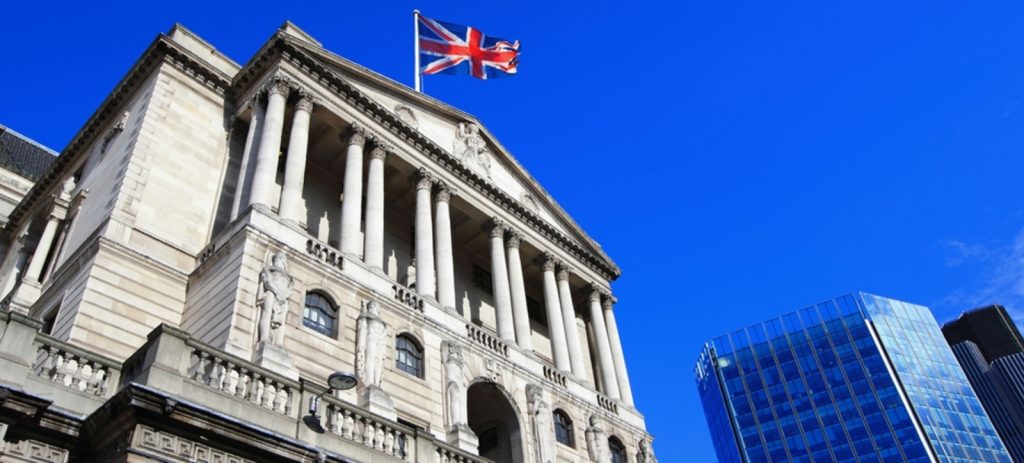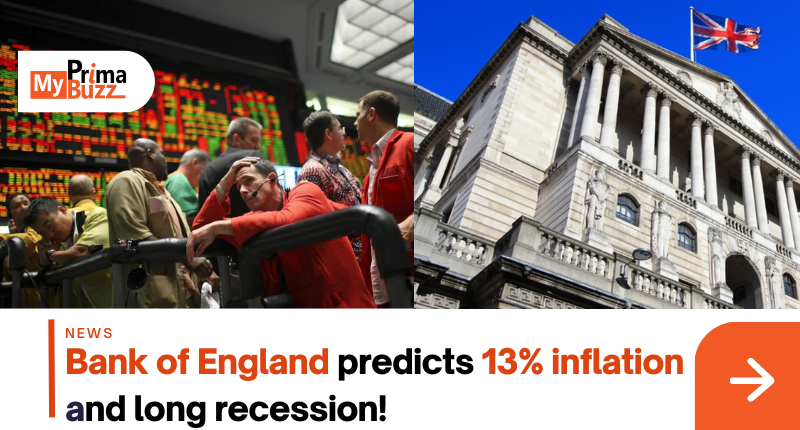The Bank of England on Thursday hiked interest rates by 50 basis points, its largest single increase since 1995, and projected the U.K.’s longest recession since the global financial crisis.
The sixth consecutive increase takes borrowing costs to 1.75% and marks the first half-point hike since the bank was made independent from the British government in 1997.
The Monetary Policy Committee voted by a majority of 8-1 in favor of the historic half-point rise, and cited climbing inflationary pressures in the U.K. and the rest of Europe since its previous meeting in May.
Bank of England: Fall of Real Incomes for UK Households is Incoming

“As this feeds through to retail energy prices, it will exacerbate the fall in real incomes for UK households and further increase UK CPI inflation in the near term.”
The bank now expects headline inflation to peak at 13.3% in October and to remain at elevated levels throughout much of 2023, before falling to its 2% target in 2025.
The MPC noted that the labor market remains tight, with domestic cost and price pressures elevated, adding that there is a risk that a “longer period of externally generated price inflation will lead to more enduring domestic price and wage pressures.”
Bank of England Governor: Inflation Caused by Russia's War
In a news conference following the announcement, Bank of England Governor Andrew Bailey said the shock of Russia’s war in Ukraine is now the largest contributor to U.K. inflation “by some way.”
“There is an economic cost to the war, but I have to be clear, it will not deflect us from setting monetary policy to bring inflation back to the 2% target,” he added.
Markets had broadly priced in the more aggressive approach at the August meeting, after U.K. inflation hit a new 40-year high of 9.4% in June as food and energy prices continued to surge, deepening the country’s historic cost-of-living crisis.
Bailey vowed last month that there would be “no ifs or buts” in the central bank’s commitment to returning inflation toward its 2% target.
Bank of England: Gas Price Rise Leads to Deterioration of Economy

The bank issued a dire outlook for economic growth, suggesting that the latest gas price rise has led to another “significant deterioration” in the outlook for activity in the U.K. and the rest of Europe.
The MPC now projects that the U.K. will enter recession from the fourth quarter of 2022, and that the recession will last five quarters as real household post-tax income falls sharply in 2022 and 2023 and consumption begins to contract.
“Growth thereafter is very weak by historic standards. The contraction in output and weak growth outlook beyond that predominantly reflect the significant adverse impact of the sharp rises in global energy and tradable goods prices on U.K. household real incomes,” the MPC said in its monetary policy report.

